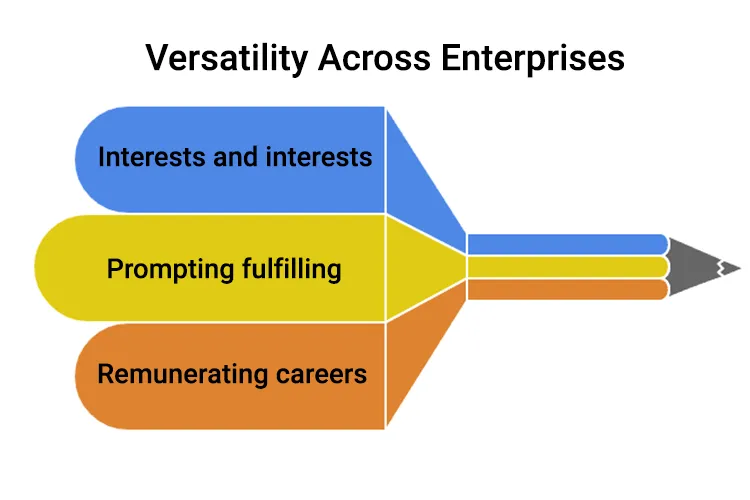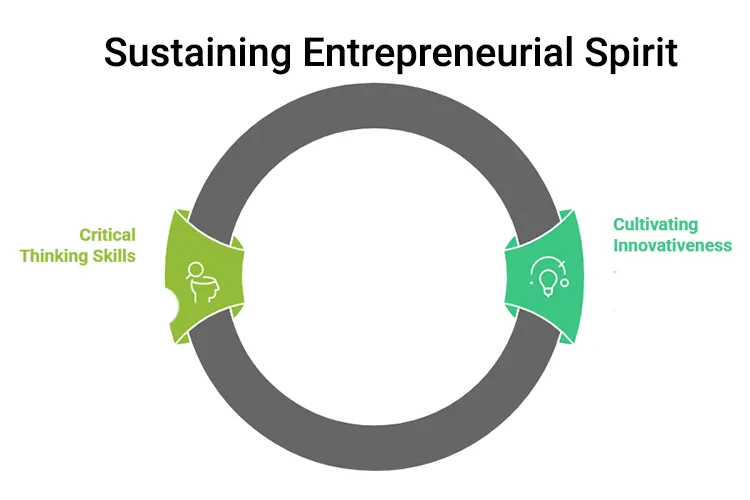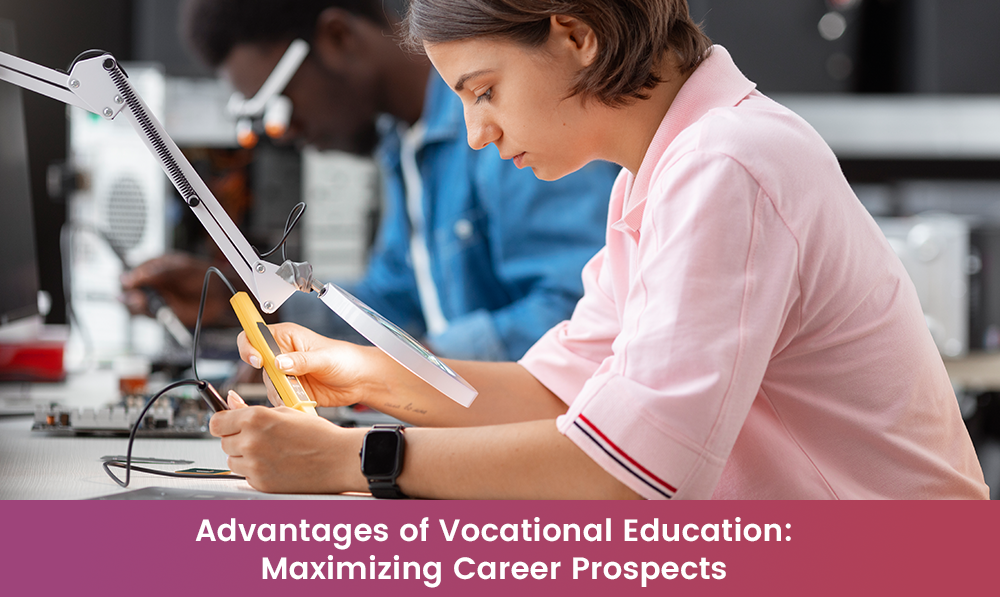Introduction :
In the dynamic landscape of education's advancement, the crossing point of career development and learning remains as a basic nexus. As understudies explore their educational excursion, the pathways they pick use significant impact over their future directions. This article dives into the nuanced benefits of vocational education, revealing insight into its multifaceted nature and highlighting its ability to improve career prospects. For people looking for a methodology saturated with realism and skill-driven learning, vocational education arises as a convincing road for diagramming a deliberate course in their scholar and professional pursuits.1) Figuring out Vocational Education:
Vocational education, frequently meant as career or specialized education, is an educational worldview decisively tailored to outfit understudies with practical skills and designated information straightforwardly applicable to specific enterprises. Veering from conventional scholarly courses, this approach puts an exception on experiential learning, establishing understudies in active experiences and real-world applications. By focusing on the procurement of skills that consistently line up with industry demands, vocational education positions students for progress in their chosen fields, offering a holistic and dynamic educational experience. This deliberate takeoff from ordinary techniques is a demonstration of the viability of an education model finely tuned to the needs of a quickly developing professional scene.2) Holistic Skill Development:
One of the essential advantages of vocational education is its accentuation on holistic skill development. Past hypothetical information, understudies take part in practical preparation, leveling up abilities that are straightforwardly adaptable to their picked career paths. This multifaceted skill securing upgrades their employability and preparation for the professional realm.The growth in on-the-job training (to ~ 9.3% in 2023) and hereditary/informal learning underlines how non-theory, applied forms of learning are increasingly part of people’s skillsets.
3) Tailored Learning for Career Alignment:
Dissimilar to traditional education models, vocational education tailors learning experiences to line up with specific careers. This designated approach guarantees that understudies procure particular information and mastery, straightforwardly applicable to the businesses they intend to enter. It gives an unmistakable and intentional educational direction, making way for a consistent change into the labor force.4) Career Development Mixed with Practical Experience:
Vocational education incorporates hypothetical learning with significant practical experience. This combination overcomes any issues among the scholarly community and industry, permitting understudies to apply their insight in real-world situations. Openness to genuine workplaces upgrades their comprehension as well as develops a feeling of professional acumen from a beginning phase. According to OECD data in 2024, adults aged 25-64 with VET upper secondary qualifications have an employment rate of ≈ 79.5%, higher than those with general upper secondary education (~75.9%). Among younger adults (25-34), the difference is even larger: 83.2% vs 73.8%.5) Versatility Across Enterprises:
 One astounding part of vocational education is its versatility across different businesses. Whether it's medical services, data innovation, or skilled exchanges, vocational projects take special care of a range of career ways. This versatility guarantees that people can pick educational tracks lined up with their
One astounding part of vocational education is its versatility across different businesses. Whether it's medical services, data innovation, or skilled exchanges, vocational projects take special care of a range of career ways. This versatility guarantees that people can pick educational tracks lined up with their
- Interests and interests
- Prompting fulfilling
- Remunerating careers
Explore MITACSC's courses designed to shape your future and unlock opportunities.
6) Satisfying Industry Needs:
Businesses are dynamic, and vocational education is intended to stay up with developing demands. By remaining receptive to industry necessities, vocational projects furnish understudies with the most recent skills and information. This responsiveness guarantees that graduates are qualified as well as important in the contemporary work market.7) Upgraded Practical Information Maintenance:
Involved learning experiences significantly upgrade the maintenance of practical information. Vocational education uses this idea by drenching understudies in real-world applications, making the learning system more paramount and relevant. The outcome is a labor force that has hypothetical comprehension as well as can capably apply their insight in professional settings.8) Sustaining Entrepreneurial Spirit:


